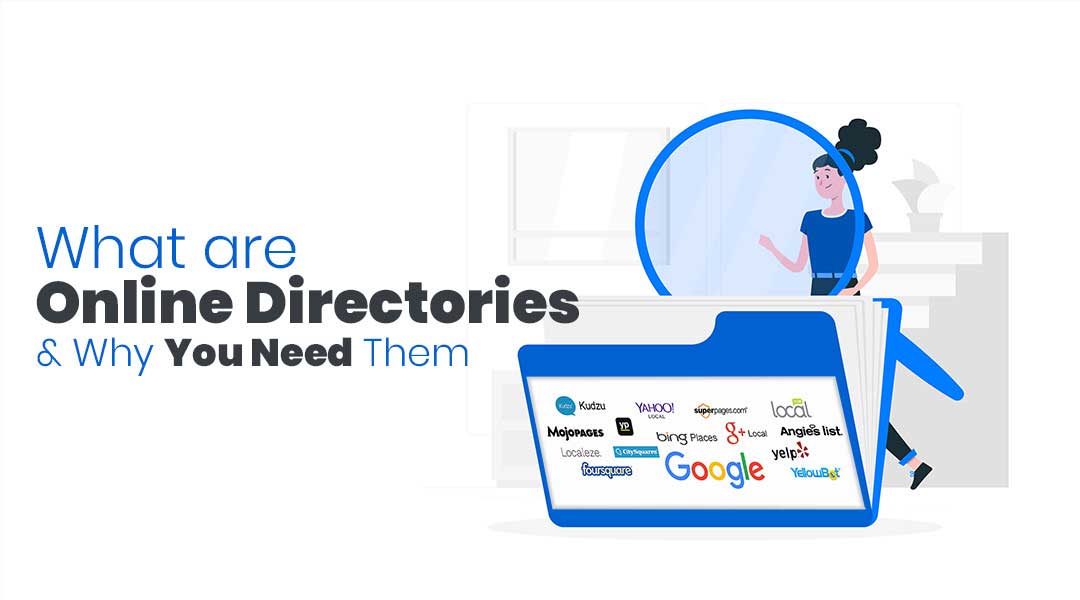From Targeted to Global: The Way Web Catalogs Increase Visibility
From Targeted to Global: The Way Web Catalogs Increase Visibility
Blog Article

In today's fast-paced digital landscape, the significance of exposure cannot be underestimated. Companies and people alike are constantly looking for efficient methods to reach wider audiences and leave their stamp in a busy online space. One of the most powerful tools at hand for achieving this objective is the web directory. Initially perceived as basic lists of websites arranged by categories, web directories have developed into sophisticated platforms that offer a pathway for users to find appropriate content and services.
Web portals serve a similar role, acting as universal gateways to information and resources spanning various domains. These platforms not just enhance navigation but also create vibrant ecosystems where users can interact with diverse content designed to their preferences. The rise of web directories and portals marks a significant shift in how information is arranged and accessed, permitting even specialized businesses to extend their influence on a international scale. This piece investigates how these digital tools are closing gaps and linking people, finally changing the way we engage with the online world.
The Development of Web Directories
Web directories have seen significant changes since their inception in the early period of the internet. At first, they served as simple collections of links organized into various topics, helping users navigate the growing expanse of online content. These initial directories were frequently overseen by hand, depending on people editors to sort information and ensure quality. As a result, they became invaluable resources for users seeking particular information without the overwhelming noise of search engines.
Advanced Analytics for Startups
With the rise of search engines in the final 1990s and early 2000s, the role of web directories began to shift. As search algorithms advanced and indexing became more refined, directories struggled to maintain their relevance. This era observed many traditional web directories fade, while others adapted by integrating more innovative features, such as user-generated content, reviews, and better categorization. By embracing these innovations, some directories were able to evolve into critical tools for businesses and consumers alike, offering distinct value beyond what traditional search engines could deliver.
Today, web directories have increased their capabilities and can be seen as important parts of online marketing strategies. Many have evolved into comprehensive web portals, merging the elements of content discovery and social interaction. These platforms not only list websites but also provide more resources such as articles, forums, and user-generated reviews, creating a more immersive experience for visitors. As they keep to adapt to changing technology and user needs, web directories remain a significant player in helping users find information and connect with services on a international scale.
Advantages of Web Portals in Global Reach
Online portals play a key role in expanding the global reach of businesses and institutions by offering a consolidated platform for diverse content and services. By compiling information from multiple sources, web portals make it easier for users to obtain relevant data, regardless of their situation. This ease of access not only enhances user experience but also boosts engagement, as users are more likely to return to a site that offers extensive resources in one place.
Another notable advantage of web portals is their ability to serve a global audience by offering multilingual support and tailored content. This personalization ensures that users from varied regions can access information that is applicable and available to them. Businesses can take advantage of this feature to target new markets and adjust their products to meet the particular demands of various populations, therefore driving growth and increasing their reach across borders.
Moreover, web portals can facilitate communication and collaboration on a global scale. By incorporating tools such as chat rooms, chat features, and collaborative documentation, these platforms promote interaction among users from multiple backgrounds. This collaboration fosters a sense of community and mutual understanding, which can lead to innovative ideas and partnerships, further enhancing the global presence of companies that effectively employ web portals effectively.
Case Studies: Successful Examples of Online Directories
One of the notable examples of a thriving web directory is the Yelp platform. Originally launched as a local business directory, it has evolved into a universal platform where users can find comprehensive information about restaurants, retail businesses, and services in their area. By allowing users to leave reviews and ratings, Yelp not only enhanced the visibility of local businesses but also built a community of active users. This transformation led to an significant expansion beyond its initial niche, making Yelp a go-to resource for people seeking trustworthy recommendations.
Another remarkable success story is the Yellow Pages directory, which transitioned from a traditional print directory to a dynamic online web portal. Adjusting to the digital age, it developed a all-encompassing platform where users can look for various services, compare options, and access feedback. This transition not only helped Yellow Pages remain relevant but also broadened its global reach, as consumers now have access to a wealth of information at their fingertips. The platform effectively blends traditional directory features with the strengths of modern technology, appealing to a diverse audience.
Finally, the TripAdvisor platform showcases how web directories can succeed in niche markets, such as travel and hospitality. By compiling user-generated reviews, assessments, and photographs, TripAdvisor has grown into one of the largest travel web portals in the world. It provides travelers with essential guidance into lodging, attractions, and restaurants, allowing them to make wise decisions. This focus on user engagement and content generation has propelled it from a niche website to a major player in the global travel industry, showing the transformative power of web directories.
Report this page